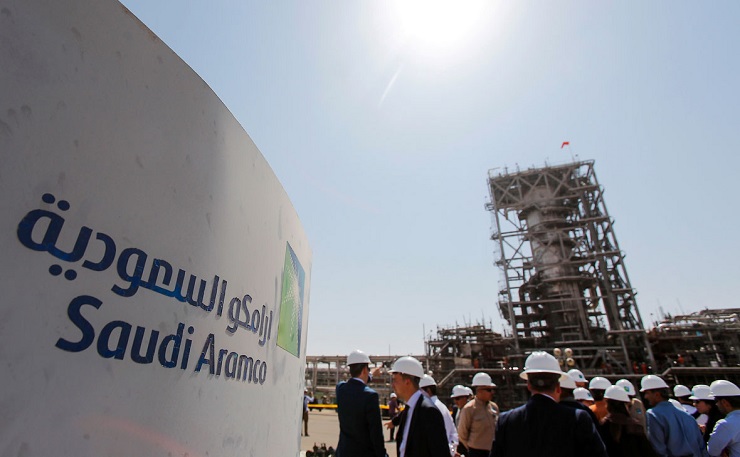Although it seems inadvertent, the Russia-Ukraine war has bitterly exposed the limits of US influence in the Middle East. On the one hand, Washington has failed to force the OPEC countries to increase oil production, and on the other hand, the region is already calibrating to form a joint security architecture independent of Washington. In fact, as reports in the US mainstream media have highlighted, Biden’s decision to use its oil strategic reserves to control rising oil prices was specifically forced upon him by Saudia’s refusal to break the OPEC-plus pact – which includes Russia as well – to increase daily oil production. This is an indication of the extremely poor state of US-Saudia ties since the arrival of Joe Biden in the White House. This state is likely to deteriorate further, as pressure from within the US government – and state institutions – builds up on Biden to review, or downgrade, Washington’s ties with the Riyadh.
In the second week of April, leaders of the House foreign affairs and intelligence committee along with 20 other Democrats wrote a letter to the White House asking the Biden administration to “recalibrate” US ties with Riyadh in view of the latter’s refusal to toe the US line in the ongoing Russia-Ukraine conflict.
These Congressmen reminded Joe Biden of the US’ “continued unqualified support for the Saudi monarchy, which systematically, ruthlessly represses its own citizens, targets critics all over the world, carries out a brutal war in Yemen, and bolsters authoritarian regimes throughout the Middle East and North Africa, runs counter to U.S. national interests and damages the credibility of the United States to uphold our values.”
The letter further added that this “recalibration” has become all the more important because the Saudi crown prince
“rejected a phone call from the U.S. government to discuss Russia’s invasion of Ukraine and the subsequent oil crisis. Instead of accepting appeals from our government to produce more oil, an initial step that would immediately lower prices for Americans across the country, the Saudi monarchy has elected to engage in talks with Beijing to discuss pricing a portion of its oil sales to China in yuan, a proposal that would weaken the reach of the dollar.”
While critical of Saudi policies, this letter is perhaps a very apt analysis of the shifting global geopolitics and how one of the largest producers of oil in the world is responding to it. This response is quite certainly a shock for many in the US where successive administrations, up until 2020, provided all possible support to the Saudis in their various geopolitical adventures.
But, when Joe Biden came into power and as he sought to implement the ‘Asia Pivot 2.0’, the Middle East – including the Saudis – lost its preeminent relevance for the US geopolitics. The US was seeking to shift the focus of international conflict from the Middle East to Southeast Asia. This shift towards anti-China geopolitics, however, also allowed Europe to recalibrate its ties with Russia, which is why Nord Stream-2 became possible and why an increasing number of European states started talking about a European security infrastructure independent of NATO and the US. However, a European recalibration was not acceptable to the US; hence, Washington’s support for expanding NATO to Ukraine to revive the ‘Russian threat’ to Europe. This has served the US insofar as many European countries – Sweden and Finland, for instance – are seeking NATO membership and existing NATO members, such as Germany, are increasing their defence budgets, part of which will be spent on buying the made-in-US F-35 jets.
But the US cannot have its cake and eat it too. While it has been able to bring Europe back under its control, its withdrawal from the Middle East has allowed the latter to pursue a foreign policy approach that does not converge with the US. The US, in simple words, has lost its allies in the Middle East. This is one key reason behind Washington’s push to make a deal with Iran to allow the Iranian oil to reach the international market to help bring oil prices down.
But the US deal with Iran has only added to the list of points of contention plaguing the US-Saudia ties at a time when the Iran-backed Houthi rebels have attacked Saudia Arabia’s mainland many times in the recent past. But the Saudi-backed truce and the exit of a Saudi-backed Yemeni president indicate that Riyadh, given that it no longer receives any direct support from the US, might be willing to remove this burden off its shoulder to move permanently away from the US toward ‘the East’, as the above-mentioned letter indicates.
But this shift, as stressed above, has its roots in the US policies. Washington’s ongoing negotiations with Iran indicate to Riyadh clearly that the US is seeking to dismantle the regional security architecture it maintained and led for many decades. Riyadh, accordingly, is slowly but surely moving towards redefining its ties with Israel. But, while Riyadh is yet to officially recognise Israel like the UAE, its shift towards China and Russia in the wake of the Ukraine-Russia war speaks volumes about the fact that this shift is long-term, if not permanent.
If the Biden administration, which recently hit the lowest point of popularity in recent polls, takes actions against the Saudia as suggested in the letter, it might make this shift permanent. If the Saudis stick to the OPEC-plus pact and refuse to entertain US calls, that too would make this shift permanent.
Salman Rafi Sheikh, research-analyst of International Relations and Pakistan’s foreign and domestic affairs, exclusively for the online magazine “New Eastern Outlook”.

